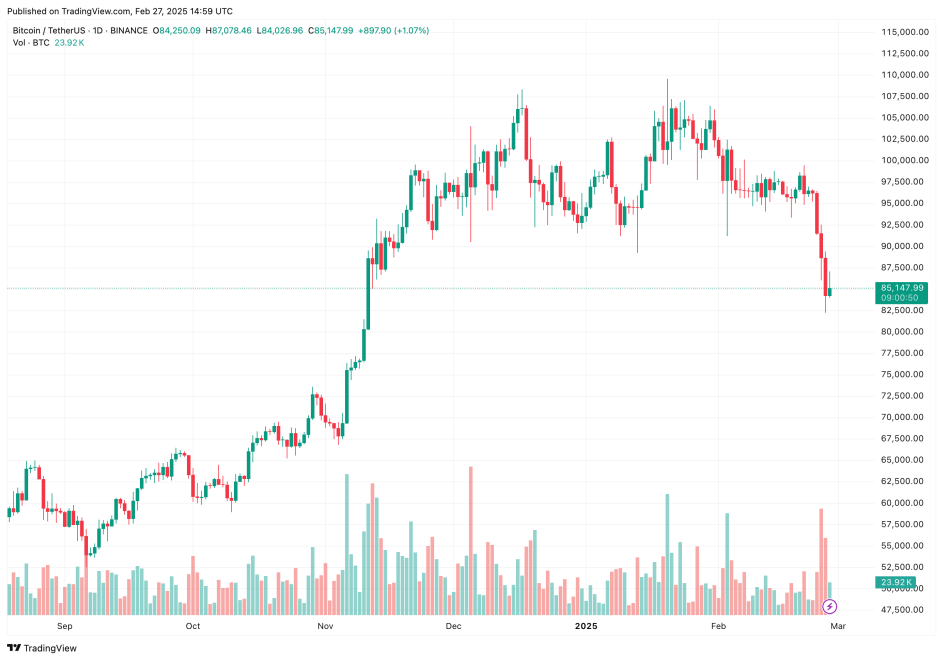According to a recent report by Dawn, Pakistan is set to establish a National Crypto Council to oversee digital asset regulation in the country. This decision marks a significant policy shift as Pakistan moves toward embracing cryptocurrencies, a stance that contrasts with its previous resistance.
Pakistan To Create Crypto Council
Since US President Donald Trump’s victory in the November 2024 election, countries around the world have been steadily adopting a more favorable attitude toward digital assets. Trump’s campaign had strongly advocated for crypto-friendly regulations, and his administration has followed through with policies supporting digital assets.
Against this backdrop, Pakistan has emerged as one of the latest major countries to publicly announce a complete turnaround in its approach to digital assets. In a landmark decision, the South Asian nation legalized cryptocurrencies in November 2024, signalling a departure from its long-standing resistance to digital assets.
Now, in a further step toward regulating the industry, Pakistan is planning to create a National Crypto Council that will focus on developing legislation for the rapidly growing digital asset sector. This initiative follows a recent meeting between Pakistan’s Finance Minister Muhammad Aurangzeb and a delegation of US officials, including Trump’s newly appointed digital asset advisors.
The proposed council will consist of government representatives, regulatory authorities, and industry experts. The report reads in part:
This crypto council will oversee policy development, address regulatory challenges, and ensure that Pakistan’s digital asset ecosystem evolves in a secure, compliant, and sustainable manner. The council will also collaborate with friendly countries to develop standardised frameworks for international digital economic engagement.
It is worth noting that as recently as last year, both the Pakistani government and its central bank maintained a strict stance against digital assets. A former finance minister had even declared that digital assets would never be legalized in the country.
However, the government’s latest policy shift indicates a complete reversal of this position. Finance Minister Aurangzeb’s progressive stance on digital assets suggests that Pakistan is now committed to establishing a well-regulated and positive framework for the digital assets industry. The move aligns with international best practices and complies with Financial Action Task Force (FATF) guidelines, which aim to prevent financial crimes and money laundering.
Aurangzeb has also emphasized the importance of blockchain technology in modernizing Pakistan’s financial sector. He has directed relevant stakeholders to develop a comprehensive regulatory framework that ensures security, transparency, compliance with global regulatory standards, and economic viability while safeguarding against illicit financial activities.
The Pakistani Finance Minister’s remarks suggest that Pakistan is not just looking to legalize digital assets, but also intends to integrate blockchain technology into its financial infrastructure to promote efficiency and innovation.
Crypto Regulations In Asia At A Glance
Digital asset regulations in Asia differ significantly depending on the country. For instance, unlike Pakistan, India continues to maintain a harsh stance on digital assets, imposing high taxes on crypto transactions to discourage people from engaging with the industry.
India’s stance on cryptocurrencies is interesting given the fact that the country leads the world in terms of crypto adoption. Neighbouring country Bhutan surprised the world last year when it revealed its massive Bitcoin (BTC) holdings.
Moving east, Singapore and Taiwan have emerged as two of the most pro-crypto nations in the world. Conversely, China continues to make crypto trading harder for its residents.
Further east, South Korea and Japan appear to be following a cautious approach toward cryptocurrencies. At press time, BTC trades at $85,147, down 2.8% in the past 24 hours.
















